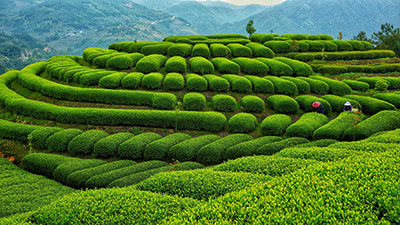
Notice! EGCG Is Listed In EU Food Restricted Substances List
Source: Nutri Avenue
The European Commission issued a new regulation (EU) 2022/2340 on November 30, 2022, amending Annex III of Regulation No. 1925/2006 of the European Parliament and the Council, including (-) Epigallocatechin-3-Gallate from Green Tea Extract, simply called EGCG, is included in the list of restricted substances. The new regulations came into effect on December 21, 2022, and related products that do not meet the requirements of the new regulations will be restricted from the sale from June 21, 2023.
What Is (-)- Epigallocatechin-3-Gallate (EGCG)?
Unfermented green tea contains flavonols, commonly known as (-)- Epigallocatechin-3-Gallate. The most critical component of catechins is EGCG. And EGCG is the main component of tea polyphenols’ biological activity. Therefore, Epigallocatechin-3-Gallate is the most studied among green tea extract.
Currently, catechin is a common ingredient in dietary supplements in European and American countries. And major manufacturers have praised EGCG for its effects in regulating blood lipids, anti-inflammatory, and anti-oxidation.
Why Was Green Tea Extract Containing EGCG Included In The List of Restricted Substances?
As early as 2015, Norway, Sweden, and Denmark proposed to the European Union to include it in Annex III of (EC) No 1925/2006 due to the potential risks of ingesting EGCG, especially EGCG contained in green tea extracts.
* The substances listed in this appendix are banned, restricted, or subject to EU review in food.
Based on this, the EU requires the European Food Safety Authority (EFSA) to conduct a safety assessment on (-)- Epigallocatechin-3-Gallate.
In March 2018, EFSA issued an “EFSA ANS Panel, Younes M, Aggett P, et al. Scientific Opinion On The Safety Of Green Tea Catechins,” which pointed out that if daily EGCG intake greater than or equal to 800mg will cause serum transaminases to increase and cause liver damage. Even if the daily intake is less than 800mg, it should not rule out the possibility of harm to the human body.
It is worth noting that, affected by factors such as variety, planting environment, preparation technology, and processing conditions, the EGCG content varies greatly in foods such as traditional green tea infusions, dissolved tea beverages, and dietary supplements containing concentrated green tea extracts. Data on the dose-response relationship between EGCG content and abnormal liver parameters are limited, and the mechanism of related hepatotoxicity is still unclear.
Given the many uncertainties above, EFSA cannot finalize the safe dietary intake of green tea catechins. Finally, the European Commission decided to include green tea extracts containing EGCG in Annex III of (EC) No 1925/2006 for management.
Conclusion
(EU) 2022/2340 clarified: Foods containing green tea extracts that were legally placed on the market before this regulation came into effect, if they do not meet the requirements of this regulation, shall not continue to be sold in the market from June 21, 2023.

Source: New EU Regulation (EU) 2022/2340
As mentioned above, the new regulations were enacted on December 21, 2022. Relevant companies should adjust the corresponding product labels on time and increase warning statements for vulnerable consumer groups to avoid unnecessary losses.
In addition, it should be noted that (-) epigallocatechin-3-gallate, which is highly purified (not less than 90%) extracted from green tea leaves, can still be used in nutritional supplements and dietary supplements. It is not affected by this Ordinance.

Contact Us
Add: 414, Institute of Quality Standard and Testing Technology for Agro-products of Chinese Academy of Agricultural Sciences, No. 12, Zhongguancun South Street, Haidian District, Beijing, China
Email:typ@withworld.cn
Tel:+86 10 53647310